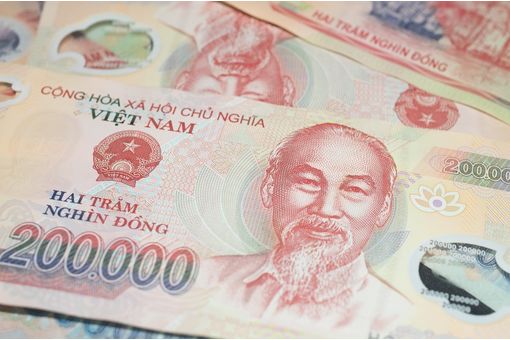Interviews
Cotton industries disappointed with Arbitration Panel decision on GSM
03 Sep '09
4 min read

In response to the WTO Arbitration Panel decision on the USDA export credit guarantee (“GSM-102”) program released August 31, the North American Export Grain Association, National Cotton Council, CoBank, Farm Credit Council, US Rice Producers Association, and National Council of Farmer Cooperatives released the following statement:
We are very disappointed that the panel based its decision on the GSM program as it existed in 2005, and failed to recognize the significant changes that have been made to the GSM-102 program since 2005. As a result, we urge the U.S. government to request a new Compliance Panel to update this ruling to reflect the changes in the program made by Congress and the USDA since 2005.
The extent of the program changes is demonstrated in the President's budget for fiscal year 2010. According to the U.S. Office of Management and Budget, in 2010 the GSM program will generate a positive return to the federal government of $54 million. In other words, the revenues from guarantee premiums charged to program participants more than offset the cost of program operations, including any credit losses. Under the WTO panel's obsolete ruling, Brazil would be entitled to place tariffs or other import penalties on an amount of U.S. products based on the use, each year in the future, of a program that is clearly not a subsidy.
The WTO panel also failed to recognize the benefits that have accrued to Brazil's banks as a result of their significant participation in the GSM-102 program. These benefits far outweigh the costs arrived at by the arbitration panel. Ironically, Brazil's banks have been by far the largest users of the GSM-102 program since 2002 – the year in which Brazil initiated its WTO case against the United States. Since that time, Brazilian banks have taken more than $5.4 BILLION in loans under the GSM-102 program.
On July 1, 2005, USDA adopted measures to bring its three export credit guarantee programs into compliance with WTO obligations. USDA adopted risk-based guarantee premiums for the GSM-102 Program and the Supplier Credit Guarantee Program and suspended the GSM-103 program.
The U.S. Congress made these changes permanent by enacting them into law as part of the 2008 Farm Bill. As part of that bill, Congress eliminated the GSM-103 program and abolished the statutory one percent “cap” on guarantee premiums that could be charged by USDA. Congress also eliminated the Supplier Credit Guarantee Program, leaving GSM-102 as the sole remaining USDA export credit guarantee program. In addition, Congress included language in the Farm Bill requiring USDA to operate the GSM-102 program at no net cost to the government, thereby ensuring that the program would not be a subsidy and would comply with the WTO obligation that guarantee premiums received under the program would cover its operating costs and losses.
The panel's decision to award Brazil retaliatory authority in amounts basedon the future use of a program that is now compliant with WTO rules makes no sense. The panel's award decision seems to punish the U.S. for its compliance efforts. The panel's decision also is inconsistent with the WTO Doha trade negotiating text which permits export credit guarantee programs that have been subject to appropriate “disciplines.”
We are very disappointed that the panel based its decision on the GSM program as it existed in 2005, and failed to recognize the significant changes that have been made to the GSM-102 program since 2005. As a result, we urge the U.S. government to request a new Compliance Panel to update this ruling to reflect the changes in the program made by Congress and the USDA since 2005.
The extent of the program changes is demonstrated in the President's budget for fiscal year 2010. According to the U.S. Office of Management and Budget, in 2010 the GSM program will generate a positive return to the federal government of $54 million. In other words, the revenues from guarantee premiums charged to program participants more than offset the cost of program operations, including any credit losses. Under the WTO panel's obsolete ruling, Brazil would be entitled to place tariffs or other import penalties on an amount of U.S. products based on the use, each year in the future, of a program that is clearly not a subsidy.
The WTO panel also failed to recognize the benefits that have accrued to Brazil's banks as a result of their significant participation in the GSM-102 program. These benefits far outweigh the costs arrived at by the arbitration panel. Ironically, Brazil's banks have been by far the largest users of the GSM-102 program since 2002 – the year in which Brazil initiated its WTO case against the United States. Since that time, Brazilian banks have taken more than $5.4 BILLION in loans under the GSM-102 program.
On July 1, 2005, USDA adopted measures to bring its three export credit guarantee programs into compliance with WTO obligations. USDA adopted risk-based guarantee premiums for the GSM-102 Program and the Supplier Credit Guarantee Program and suspended the GSM-103 program.
The U.S. Congress made these changes permanent by enacting them into law as part of the 2008 Farm Bill. As part of that bill, Congress eliminated the GSM-103 program and abolished the statutory one percent “cap” on guarantee premiums that could be charged by USDA. Congress also eliminated the Supplier Credit Guarantee Program, leaving GSM-102 as the sole remaining USDA export credit guarantee program. In addition, Congress included language in the Farm Bill requiring USDA to operate the GSM-102 program at no net cost to the government, thereby ensuring that the program would not be a subsidy and would comply with the WTO obligation that guarantee premiums received under the program would cover its operating costs and losses.
The panel's decision to award Brazil retaliatory authority in amounts basedon the future use of a program that is now compliant with WTO rules makes no sense. The panel's award decision seems to punish the U.S. for its compliance efforts. The panel's decision also is inconsistent with the WTO Doha trade negotiating text which permits export credit guarantee programs that have been subject to appropriate “disciplines.”
National Cotton Council
Popular News
Leave your Comments
Editor’s Pick
































-Ltd..jpg?tr=w-120,h-60,c-at_max,cm-pad_resize,bg-ffffff)





.jpg?tr=w-120,h-60,c-at_max,cm-pad_resize,bg-ffffff)
.jpg?tr=w-120,h-60,c-at_max,cm-pad_resize,bg-ffffff)






